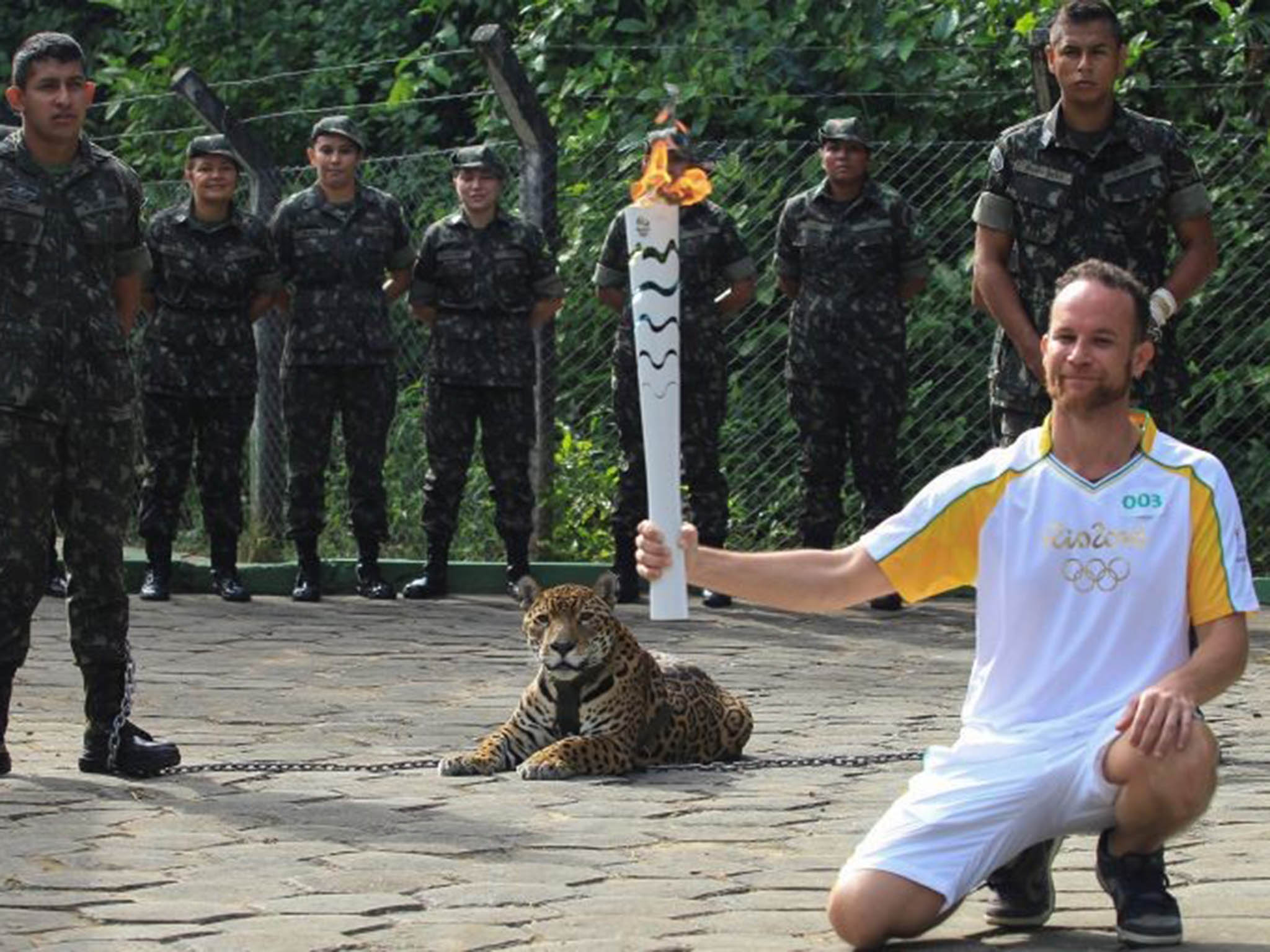A jaguar has been shot for acting like a wild animal around the Olympic torch - how many more will die for our entertainment?
"We made a mistake in permitting the Olympic torch, a symbol of peace and unity, to be exhibited alongside a chained wild animal," the local Olympic organising committee said in a statement. But this contrition is too little, too late


On Monday in the town of Manaus, Brazil, a dejected-looking jaguar named Juma sat with a heavy chain around her neck, flanked by armed soldiers and reportedly sedated, next to a man posing for photos with the Olympic torch in advance of the 2016 Olympics in Rio.
After the ceremony, this jaguar acted on her natural instinct to flee from fire, panicked and attacked a soldier – and was shot dead by another soldier for acting exactly as any animal would.
The Olympics are meant to be a celebration of human achievement and ability. According to the International Olympic Committee (IOC), "The goal of the Olympic Movement is to contribute to building a peaceful and better world by educating youth through sport practised without discrimination [of] any kind, in a spirit of friendship, solidarity and fair play." How sad that it has now become tarnished by one of the most callous and idiotic of human impulses – to dominate and control wild animals for our amusement. It's hard to imagine anything less fitting to promote the idea of "fair play" than including a chained and likely doped up animal in the ceremony.
The IOC realise their error now, of course. "We made a mistake in permitting the Olympic torch, a symbol of peace and unity, to be exhibited alongside a chained wild animal," the local Olympic organising committee said in a statement. But this contrition is too little, too late for the jaguar who lost her life in this callous blunder.
We shouldn't be surprised that Juma rebelled against her handlers. Being denied freedom and carted around like a living exhibit is a miserable and deeply frustrating existence for a big cat. And when powerful wild animals are forced into unnatural situations, things will inevitably go wrong. Captive wild animals are like ticking time bombs – and when the bomb goes off, both human and animal lives may be at risk.
Just a few weeks ago, the world reeled in shock at the shooting of Harambe the gorilla at the Cincinnati Zoo after a toddler entered his enclosure. Like Harambe, this jaguar didn't ask to be put on display – but she was punished for coming too close to her human captors.
There are many other examples of captivity ending in tragedy: Tilikum the orca killed his trainer Dawn Brancheau at SeaWorld after being kidnapped in the wild as a calf and forced to live in a small concrete tank for over 30 years. Tyke the elephant ran from the circus, trampling her captors in her haste to escape a lifetime of beatings and forced performances, until she was gunned down in a hail of police bullets.
Tyke, Tilikum, Harambe and Juma's tragic stories are all rooted in callous human behaviour. It's time we learned that animals aren't here to perform for us, to entertain us or to pose for photos. When we expect them to do so, tragedy ensues.
Join our commenting forum
Join thought-provoking conversations, follow other Independent readers and see their replies
Comments
Bookmark popover
Removed from bookmarks